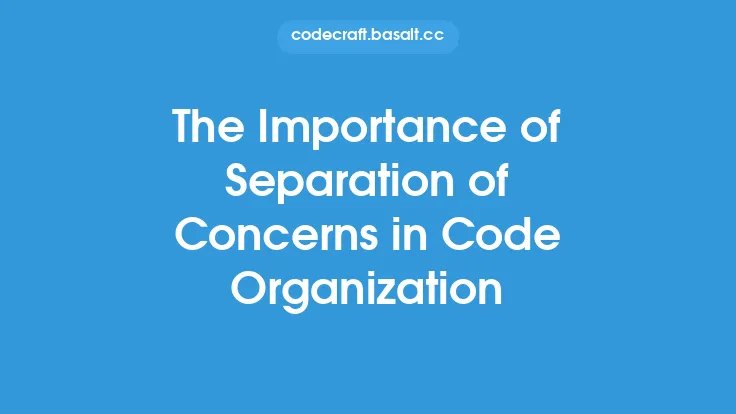In the realm of software engineering, the development of high-quality software is a multifaceted endeavor that involves various processes and methodologies. Among these, code review stands out as a crucial step that ensures the reliability, maintainability, and efficiency of the software product. Code review is the systematic examination of computer source code, intended to find and fix mistakes, and improve the overall quality of the code. It is an integral part of software engineering methodologies, contributing significantly to the refinement of the software development lifecycle.
Introduction to Code Review
Code review is a process where one or more developers, aside from the author, examine the code to catch errors, improve code quality, and ensure that it adheres to the project's coding standards and best practices. This process can be conducted in various forms, including informal reviews, pair programming, and formal code inspections. The primary goal of code review is to identify defects early in the development cycle, reducing the overall cost and time required to fix bugs and improving the maintainability of the software.
Benefits of Code Review
The benefits of incorporating code review into the software development process are numerous. Firstly, it significantly reduces the number of bugs and errors in the code, leading to more reliable software. Through code review, developers can identify and fix issues early, which is much cheaper than fixing them later in the development cycle or, worse, after the software has been released. Additionally, code review promotes knowledge sharing among team members, as it provides an opportunity for less experienced developers to learn from more experienced ones. It also helps in maintaining a consistent coding style across the project, which is essential for the readability and maintainability of the code.
Code Review Process
The code review process typically involves several steps. It begins with the developer submitting their code for review, usually through a version control system like Git. The code is then examined by one or more reviewers, who check for errors, adherence to coding standards, performance issues, and security vulnerabilities. The reviewers provide feedback in the form of comments or suggestions for improvement. The author then addresses these comments, making necessary changes to the code. Once the issues are resolved, the code is approved and merged into the main codebase. This process ensures that all code meets the project's quality and standards before it becomes part of the final product.
Tools and Techniques for Code Review
Several tools and techniques are available to facilitate the code review process. Version control systems with built-in review features, such as GitHub's pull request mechanism, are widely used. These platforms allow for easy submission, review, and management of code changes. Additionally, specialized code review tools like Gerrit, Crucible, and Bitbucket Code Review provide advanced features for managing the review process, including commenting, voting, and tracking changes. Automated code analysis tools can also be integrated into the review process to check for coding standards, security issues, and performance problems, helping to streamline the review and ensure consistency.
Challenges in Code Review
Despite its importance, code review faces several challenges. One of the main challenges is the time and effort required for a thorough review. As software projects grow in complexity and size, the amount of code to review increases, making it difficult to maintain the quality and speed of the review process. Another challenge is ensuring that reviews are constructive and respectful, providing valuable feedback without discouraging developers. Balancing the need for rigorous review with the pressure to meet project deadlines is also a significant challenge. Furthermore, the lack of standardization in code review processes and the subjective nature of code quality can lead to inconsistencies in the review outcomes.
Best Practices for Effective Code Review
To overcome the challenges and maximize the benefits of code review, several best practices can be adopted. Setting clear coding standards and review criteria helps ensure consistency in the review process. Providing timely and constructive feedback is crucial for the growth of developers and the improvement of the code. Regular training and workshops on code review techniques and best practices can enhance the skills of both reviewers and authors. Additionally, automating parts of the review process, where possible, can help reduce the workload and improve efficiency. Establishing a culture that values code review and sees it as an integral part of the development process is also essential for its success.
Conclusion
In conclusion, code review is a vital component of software engineering methodologies, playing a critical role in ensuring the quality, reliability, and maintainability of software products. By understanding the importance, benefits, and challenges of code review, and by adopting best practices and leveraging appropriate tools and techniques, software development teams can significantly improve their code quality and development efficiency. As software systems continue to grow in complexity and play increasingly critical roles in various aspects of life, the importance of rigorous and effective code review will only continue to grow, making it an evergreen and essential practice in the field of software engineering.





